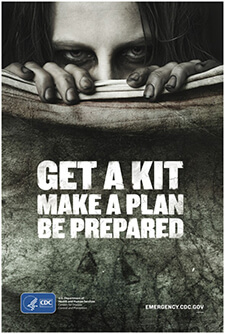What to Do In an Earthquake
Earthquakes are impossible to predict, and that makes earthquakes different from most other natural calamities. They can occur at any time, without any warning. The impacts of a major earthquake may be felt for years.
And if we do not have any preparation for an earthquake, you have to deal with dire consequences. In this post, we will show you what to do in an earthquake.
Preparing for an earthquake
It is a good thing to prepare for an earthquake, because if you are completely unprepared, you will have to pay a high price. Here are some things you can do to make sure that you are prepared for an earthquake:
Talk to the kids about earthquakes
Using simple, words, explain to your kids what an earthquake is. Tell them about your emergency plan, and tell them how to implement the evacuation plan. In any undesirable situation, safety should be your utmost priority. If you want to know what to do in an earthquake, safety should be your first concern.
Find safe spots
If you do a little brainstorm, you will find some safe spots in your home. Tell your family members where they will have to go when they notice the sign of an earthquake. Your interior room may be the safest place in your house.
Practice earthquake drills
It is a good idea to practice earthquake drills because it is will help your kids understand what to do to stay safe when an earthquake strikes. This practice drills will remind you what to do in an earthquake when an earthquake really strikes.
Keep contact information ready
Contact information may change from time to time. That is why you should make sure that the information is current. If an earthquake strikes, you will need this information to contact other people.
During an earthquake
During an earthquake, the most important thing is to stay calm, and make sure that others are not panicked. You must know how to ensure safety. If you are worried about what to do in an earthquake, here are some hints. Here are a few things you should do:
Remain calm
It is quiet natural to panic in an earthquake. But if you panic, you will not be able to take proactive approach and help others. Yes, it is hard to remain calm in an earthquake, but you should try.
If you stay calm, others will also do the same. As a result, it will be possible for you to ensure the safety of your family members during an earthquake.
Know where to go
Stay indoors if you are indoors. If there is a piece of heavy furniture, just crawl under it. And if there is not one, stand against a wall. Avoid outside doors and windows. On the other hand, you should stay outdoors if you are outdoors. Stay away from power lines, buildings and other stuff that might fall.
If you are driving when an earthquake happens, stop driving but do not park your car under trees, buildings, utility wires and overpasses. Stay in the car until the shaking stops.
Get on your hands and knees
Make sure that earthquake does not knock you to the ground. As soon as you notice the first sign, drop to the ground. Whether you are inside or outside, apply this technique. There will be less risk of injury. In this position, you can easily crawl to shelter because you are low to the ground.
Hold on
Wait for the trembling of the earthquake to stop and hold on until then. If you are under a shelter, make sure the shelter does not move from the place. Hold it with one hand. If there is no shelter to save you, make sure your head is safe.
Stay where you are
During earthquakes, injuries occur when people try to leave a building or move to a different location. If you are in a hurry, you may put other people in danger. Until the shaking stops, you should stay in a safe location.
In most cases, an earthquake stops within a minute or two. That means, you will not have to stay in that location for a very long time.
If you leave your home, take emergency kit and other items with you. Leave a message, telling where you are going. Supplies may be interrupted, and that is why you should not waste water and food.
Cover your mouth
If possible, during an earthquake, you should try to cover your face with a handkerchief. Do not kick up dust or light a match. If you find a whistle, use it. If you are under debris, try not to shout. If you do so, you may end up inhaling dust.
After an earthquake
The effects of an earthquake may last for months, and you will have to spend a lot of time to recover the losses. Some of the losses may be irreparable. You already know what to do in an earthquake. But what should you do immediately after an earthquake? Here are a few ideas:
Check you property
Due to an earthquake, your home will suffer structural damages. If you notice that your home is structurally unsafe, evacuate it as soon as possible. Once you are outside, make sure you survey the area and see if there are additional hazards.
Hazards may be created by power lines, trees and structures. Fire is a common after-effect. If you can, extinguish small fires.
If there is no fire but the electrical wires are damaged, turn off the electricity line. If there is a gas leak, do not use a match. That may lead to a disaster.
Try to find your pets. If you have to leave the building, keep your pets in a pet-friendly place.
Check on your neighbors
After looking after your own household, make sure you check on your neighbors. If people are trapped, organize rescue measures as quickly as possible. If it is not possible to help them safely, call for emergency assistance.
Collect clean water
Inspect the area to know if the water lines are damaged. If the lines are damaged, do not drink tap water. Listen to media reports. To keep hydrated, use other sources of water such as the water heater faucet and melted ice cubes.
After an earthquake, if you notice that tap water is available, fill a bathtub with water. And if you do not have access to water, do not panic.
Be cautious during cleanup
Make sure you wear sturdy shoes during cleanup. Be cautious when you are in the debris. Be careful when opening cupboard doors and closet. You may injure yourself if you are not very careful.
If there are hazardous materials, be extra careful. Wear hand gloves and eye protection. You want to know what to do in an earthquake. But you have to do most of those things after the earthquake, and cleanup is one of the most important tasks.
Prepare for aftershocks
You should be prepared for aftershocks because they may occur even weeks after the initial earthquake. They are usually less strong than the main quake, but they can cause damages. If you notice the signs of an aftershock, drop to the floor and wait for the shaking to stop.



